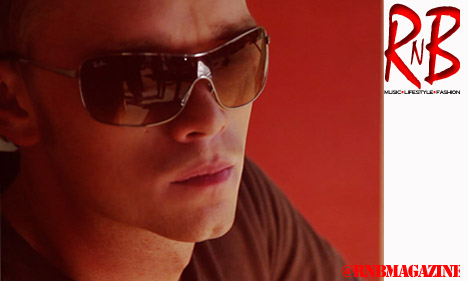In his own words, R&B recording artist, Nate Larson, pays tribute to the late, great Donny Hathaway:
October 1, 1945, Soul music came into the world kicking and screaming.
Donny Hathaway, singer, songwriter, instrumentalist and master of Soul, was, and continues to be, one the most underrated artists of his time — the truly great ones usually are. His genius is one that burrows deeper into the crevices of my heart each time it beats. He didn’t have the fame of Stevie Wonder or Marvin Gaye; he was never the flower of soul music.
He was the root — earthy, resilient, timeless.
Donny’s soul was pain-stained and he didn’t mind sharing that with the world — didn’t mind crying over a record so others’ could recognize the depths from which Soul music was born:
You taught me precious secrets of the truth withholding nothing
You came out in front and I was hiding
But now I’m so much better and if my words don’t come together
Listen to the melody cause my love is in there hiding
I was 15 when I first experienced those lyrics. His voice wept over the airways singing “Song For You” and I was spellbound by its sheer excellence. Later, I was introduced to his live recordings at the Troubadour Club in West Hollywood, where many people called him a young Nat King Cole, or a grittier Sam Cooke. Every emotion, every struggle, every insecurity poured from his body, and he exposed his core — raw and unsheltered. It was then that I understood what soul music really was; I had always enjoyed it, but it was only then that I knew it, recognized it, breathed in and let it settle into my lungs. The first day I opened my mouth to sing, I exhaled the spirit of Donny Hathaway.
Born into a Christian family, I found a kindred spirit in Donny. I lived his struggle to reconcile his faith with the song that was in his heart. Raised in the housing projects of St. Louis by his grandmother, gospel singer, Martha Pitts Crumwell, he had always been told that singing music that was not of God would lead him to hardship. Donny’s widow, Eulaulah Hathaway, once spoke of the turmoil that Donny felt trying to juggle both his internal and external expectations:
“He told me he’d tried to tell his grandmother what he was learning, but of course that wasn’t a liberty because her stance was firmly, ‘It is like I say it is, that’s the end of it, and I don’t want to hear any more about it.’ That bothered him.”
He struggled with the knowledge that the path he had chosen could potentially lead to his downfall; yet he pressed on, believing that Soul music was a spiritual experience that could only bring people closer to God. His conviction led him from touring the country with his grandmother as “Little Donny Pitts: The Nation’s Youngest Gospel Singer” to letting his words bleed on stages around the world with Roberta Flack.
Why did he leave us? Why would someone who embraced the nuances of life and all the pain and joy that it brings decide that death was the answer?
Many people say that his inner demons led him to end his life on January 13, 1979. Just recently reunited with Roberta Flack, after years of estrangement due to emotional and psychological issues, Donny was in the studio recording their second duets album when those demons came back to haunt him with a vengeance. Reports from the time claim that Donny “flipped out,” started making wild accusations that white people were controlling his brain, so that they could steal his music. In the full-blown stages of paranoid schizophrenia, his soul became his worst enemy.
Leaving the studio alone that night, he returned to New York’s Essex Hotel, where he removed the window-pane, and jumped 15 stories to his death. Rev. Jesse Jackson, who delivered Donny’s eulogy, was never convinced that it was suicide, saying at the time, “It appeared to be neither homicide nor suicide. It seems to have been an accident. Donny died with his coat, scarf and cap on, and it’s not likely that anyone would go through the preparation of putting on full attire just to jump out of a window.”
I understand his resistance to the truth. No one wanted to believe that Donny Hathaway — who had shared his pain with the world so freely — had become so isolated, so drawn into his inner torment, that he would rather die a painful death than continue to live in a world that selfishly craved his music, while ignoring the soul of the man himself.
Though it is only a mild comfort, as soon as Donny’s physical form hit that pavement, his music escaped in the psyche of Soul music, forever destined to blanket generations to come with its instinctive, magnetic mastery. People began to search for his music, hoping to be closer to him; tragically, his death led to the recognition that he craved his entire career.
When I hear the lyrics of “For All We Know” — a song that transcends time, space, religion and race — it is impossible not to feel Donny’s powerful spirit:
We won’t say goodnight
Until the last minute
I’ll hold out my hand
And my heart will be in it
For all we know
This may only be a dream
We come and we go
Like the ripples of a stream
For all we know, Donny was a vivid dream, rippling through the music scene, then vanishing just as quickly. We continue to gravitate towards every sound he touched; knowing that 33 years on earth was not nearly enough. When I sit and think of what songs he had yet to sing, what words he yet to write, how many lives he had yet to touch, I am eternally grateful that his music found a way to seep into my own life. I hope that every time I sing a note, I’m doing his legacy justice and I continue to call on his wisdom whenever I question my path:
Hang onto the world as it spins, around.
Just don’t let the spin get you down.
Things are moving fast.
Hold on tight and you will last.
Keep your self-respect your very bright.
Get yourself in gear,
Keep your stride.
Never mind your fears.
Brighter days will soon be here.
Donny knew that “Someday We’d All Be Free.” As we celebrate the day of his birth, let’s all spin our favorite Donny Hathaway record and be glad that though his soul is at rest, it still lives on in each of us.
“This is the day the Lord has made; let us rejoice and be glad in it.” — Psalm 118:24
Donny Edward Hathaway (October 1, 1945 — January 13, 1979)


